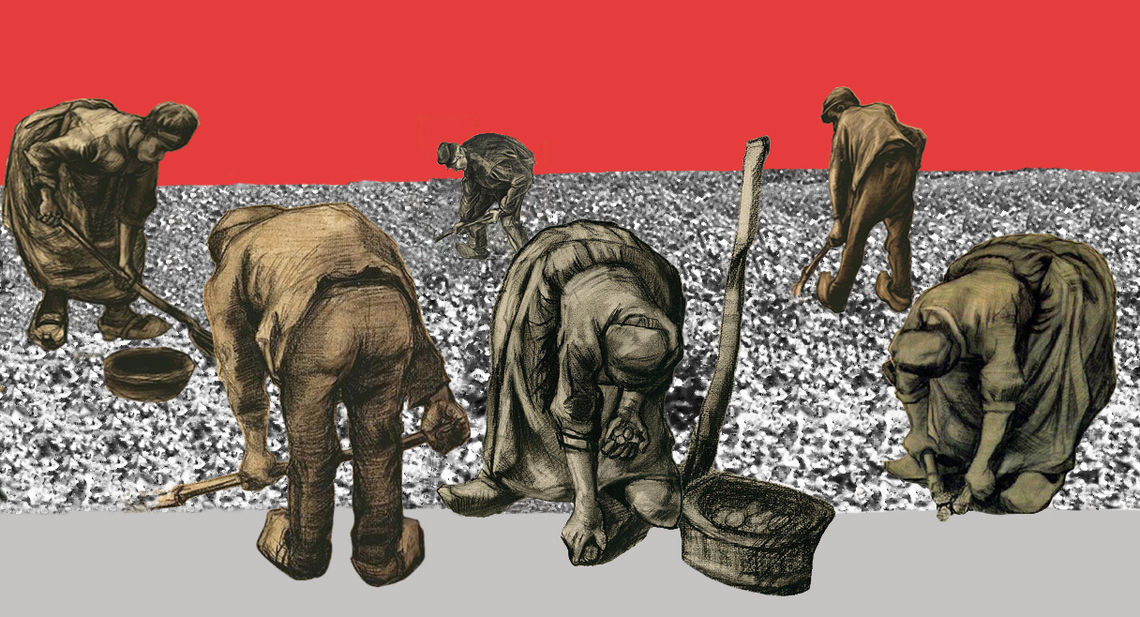

Today marks the 69th anniversary of the Universal Declaration of Human Rights, an historic document that meant to lay out the basic rights and fundamental freedoms to which all human beings are entitled. It was motivated by the horrific experiences of the two world wars and it was the first time that countries agreed to collectively draft a document on a comprehensive statement of inalienable human rights.
Article One of the Universal Declaration of Human Rights states: “All human beings are born free and equal in dignity and rights. They are endowed with reason and conscience and should act towards one another in a spirit of brotherhood.”
The spirit of brotherhood is a concept that several politicians in Armenia can’t seem to grasp. Neither do they understand that all human beings, irrespective of their rank or position in society, have the inalienable right to dignity.
“Qu’ils mangent de la brioche”
Hakob Hakboyan, a deputy in the National Assembly is a member of the ruling Republican Party of Armenia, and also chairs the Parliamentary Commission on Healthcare and Social Affairs. Talking about how inflation would impact the country’s poor, Hakobyan made a flippant remark, which sounded much like a saying attributed to Marie Antoinette when she was told about the starving peasants in France: “Let them eat cake.”
Hakobyan explained that Armenia’s poor typically spend less and consequently, they will instinctively avoid purchasing expensive goods. He went on to say, “The state policy is that if inflation will impact the poor, they should be protected. Now, there is no need for the state to address this issue as poor people have a habit of avoiding expensive items.”
Inflation in Armenia has not only affected luxury items, but the price of staples such as meat, butter, bread and eggs. The cost of butter increased by almost 40 percent recently, making it almost unattainable for many in Armenia.
Khosrov Harutyunyan, another member of parliament from the Republican Party faction said that many of the price hikes are not necessarily conditioned by economic factors within the country, but because of fluctuations in the international market. He tried to explain that there are certain segments of Armenia’s population who only buy potatoes, therefore they would continue to purchase only potatoes and hence would not be impacted by the rise of costs for other foodstuffs, which they can’t purchase anyway. The question that Mr. Harutyunyan didn’t address is why so many families continue to survive on potatoes.
The obligation to protect, promote and ensure the enjoyment of human rights is the prime responsibility of the state. Yes, it is the responsibility of Armenia’s government to address the continuing rates of poverty, to address the health and nutrition of our children, to address and ensure a quality of life that envisions dignity and rights envisioned by the Universal Declaration, to which Armenia is a signatory.
Approximately 30 percent of Armenia’s population continues to live in poverty. According to the National Statistical Service (2016), 29.4 percent live in poverty: 1.8 percent (54,000 people) live in extreme poverty, 8 percent (295,000 people) are considered very poor and 19.6 percent (880,000 people) are considered poor.
A UNICEF Report on Child Poverty assessed the multidimensional child poverty in Armenia, according to Armenia’s nationally defined measures. It found that “64 percent of children are multidimensionally poor, and 37 percent of children are monetarily poor. Almost one in three children are both poor and deprived: 28 percent of children are deprived (in two or more dimensions) and live in monetary-poor households. These children are the most vulnerable, and should be prioritized by social policies.”
Perhaps Hakobyan and his comrades-in-arms will go down in Armenian history, not for being reformers or enlightened legislators or inspiring leaders, but for their insensitivity towards their own brethren, many of whom have found themselves in poverty because of them. They should also remember the fate of all those through history who avoided to address the needs of those they should have protected.
Article 22 of the Universal Declaration of Human Rights states: “Everyone, as a member of society, has the right to social security and is entitled to realization, through national effort and international co-operation and in accordance with the organization and resources of each State, of the economic, social and cultural rights indispensable for his dignity and the free development of his personality.”
Dignity is a word that needs to be re-learned, because we seem to have lost it somewhere along the way.

